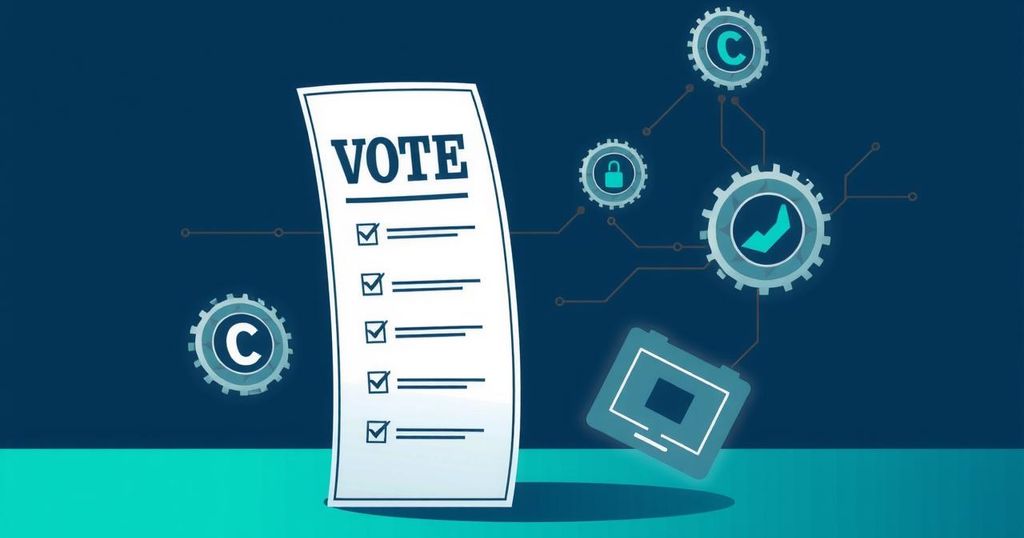Jega Warns Against Rushed Adoption of E-Voting in Nigeria
Former INEC Chairman, Professor Attahiru Jega, cautions Nigeria against hastily adopting e-voting technology due to inadequate infrastructure and manufacturing capabilities. Speaking at Democracy Day events in Lagos, he emphasizes the need for careful modernization and warns against overreliance on foreign suppliers. Jega uses Estonia’s success in e-voting and India’s continued use of mechanical voting as important examples in this debate.
Former Chairman of the Independent National Electoral Commission (INEC), Professor Attahiru Jega, has raised alarms concerning the hasty adoption of electronic voting in Nigeria. He emphasized that the government ought to proceed with caution, noting that the nation’s infrastructural issues and technological capacity might severely undermine any e-voting efforts. Jega spoke during an event in Lagos, coinciding with Democracy Day celebrations, emphasizing the need for careful modernization.
Jega’s insistence on slow and careful progress reflects growing concerns about Nigeria’s readiness for e-voting. “We have to understand the need to make haste slowly,” he pointed out, identifying significant gaps in the country’s technological infrastructure. Despite widespread calls for modernization, he urged a realistic assessment of Nigeria’s current capabilities before leaping into electronic voting.
He cited Estonia, a poster child for internet voting, as a case study that Nigeria cannot easily emulate. According to him, referring to unfair comparisons, “Estonia is a very small country with far better infrastructure.” He further highlighted Nigeria’s persistent struggles with internet connectivity, particularly in rural areas, which complicates any ambitions to adopt electronic voting.
Moreover, Jega raised a red flag over Nigeria’s lack of local manufacturing for electoral equipment. He warned against excessive reliance on foreign suppliers, stating, “We’re not equipment manufacturers. Without some level of independence, we risk becoming hostages to external suppliers.” This would leave the electoral process vulnerable to foreign influence, which is a troubling prospect for national sovereignty.
Drawing parallels with India, Jega pointed out that despite significant technological advancements, the country remains committed to mechanical voting machines, showcasing that transitioning fully to e-voting is a complex road. He remarked, “After the 2015 elections, many expected us to adopt e-voting by 2019. But the reality is different. There’s still a lot we must invest in before such systems become feasible.”
In conclusion, while Jega acknowledged the prevailing support for modernizing Nigeria’s electoral systems, he called on government stakeholders to take a measured approach to reforms. By introducing change in practical, gradual steps, the country can work towards building a more credible and lasting democratic process.
In summary, Professor Jega’s cautionary stance against the rushed implementation of electronic voting highlights critical infrastructural deficits in Nigeria. His remarks about the need for careful, measured progress and local capacity building resonate as essential elements for ensuring that any move toward modernizing the electoral process is sustainable and credible. As Nigeria looks toward the future, the call for prudence may be what is necessary to protect the integrity of its democracy.
Original Source: www.tv360nigeria.com




Post Comment